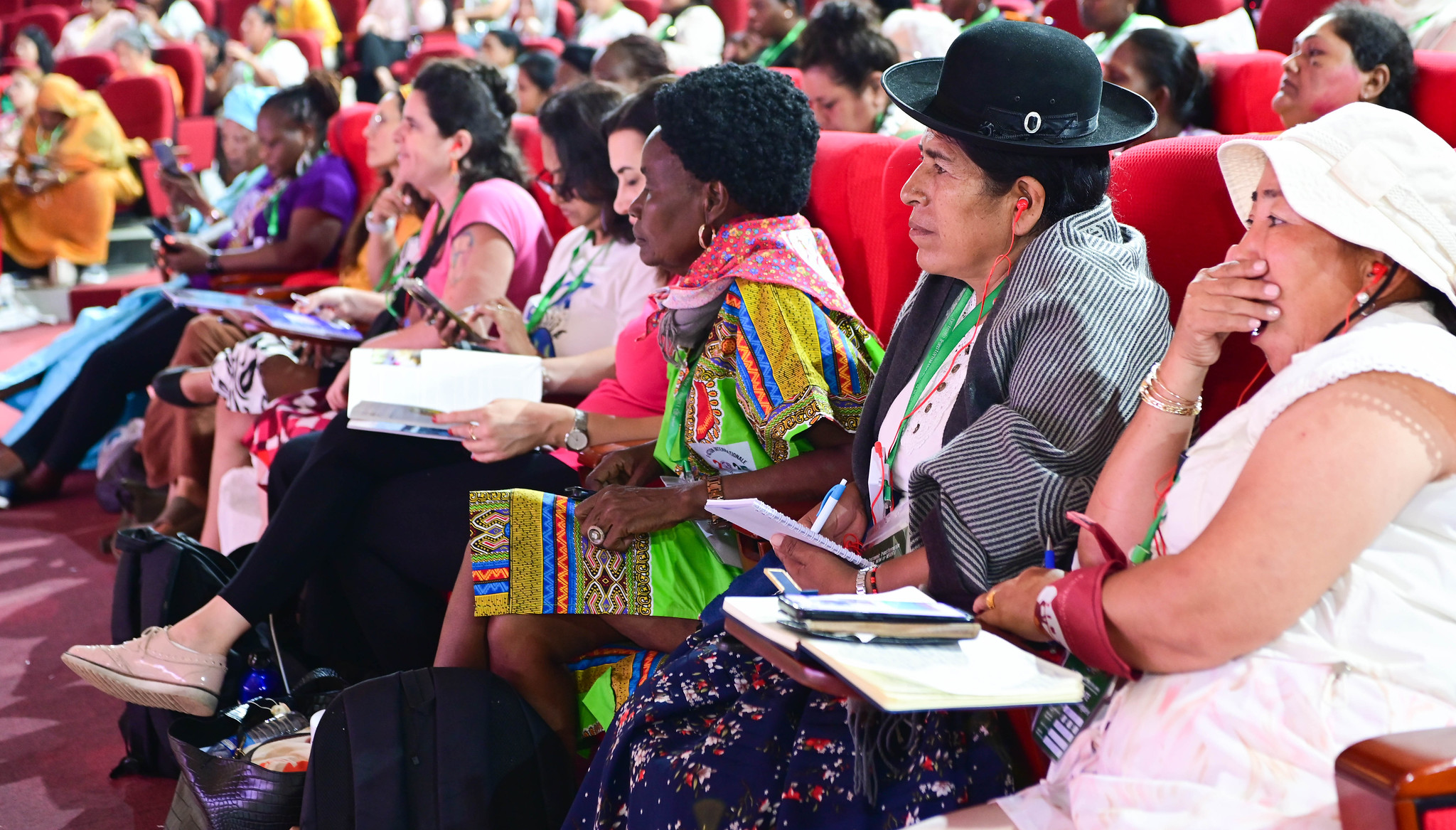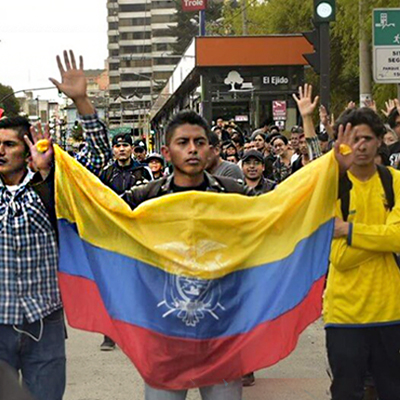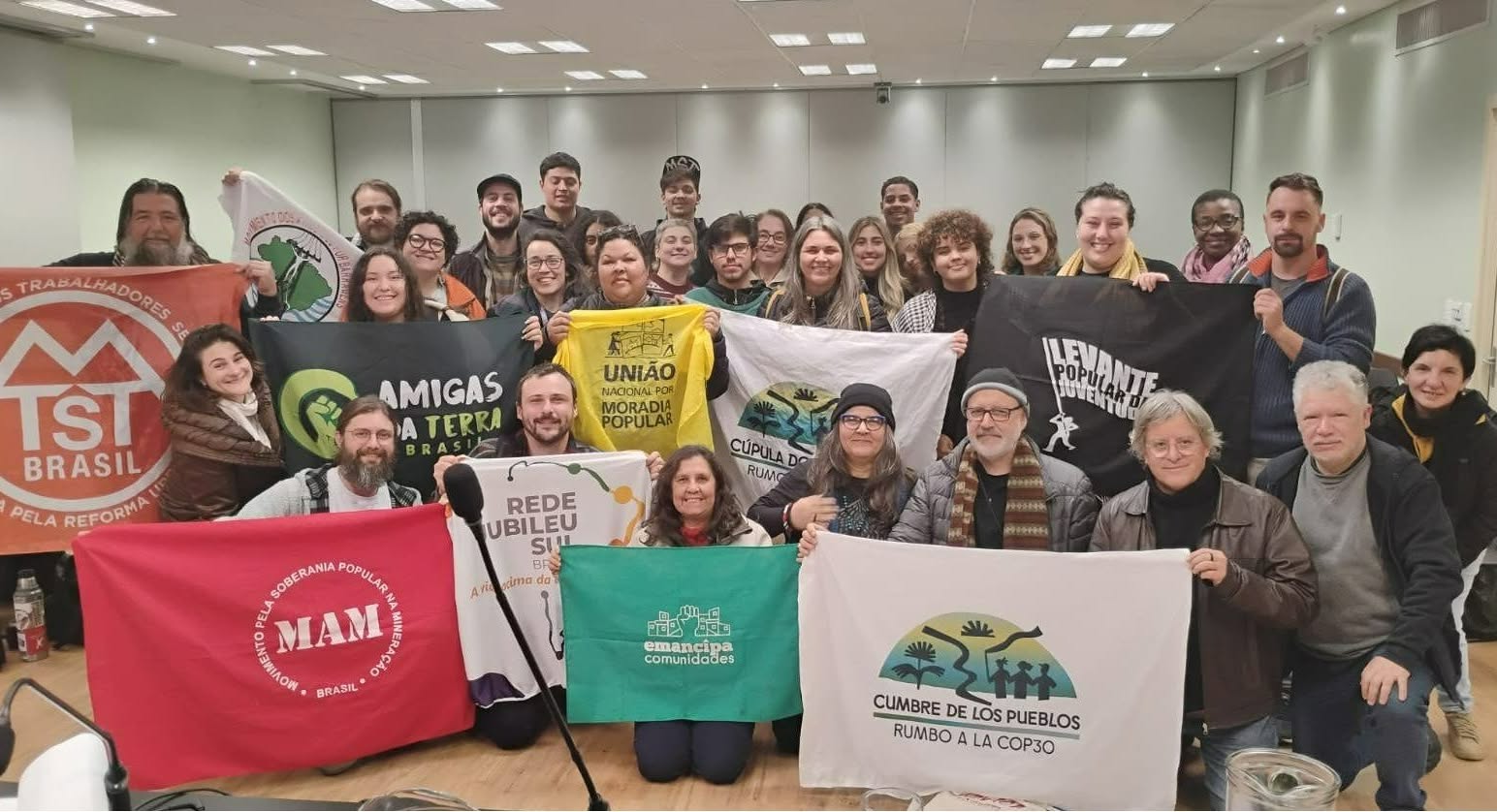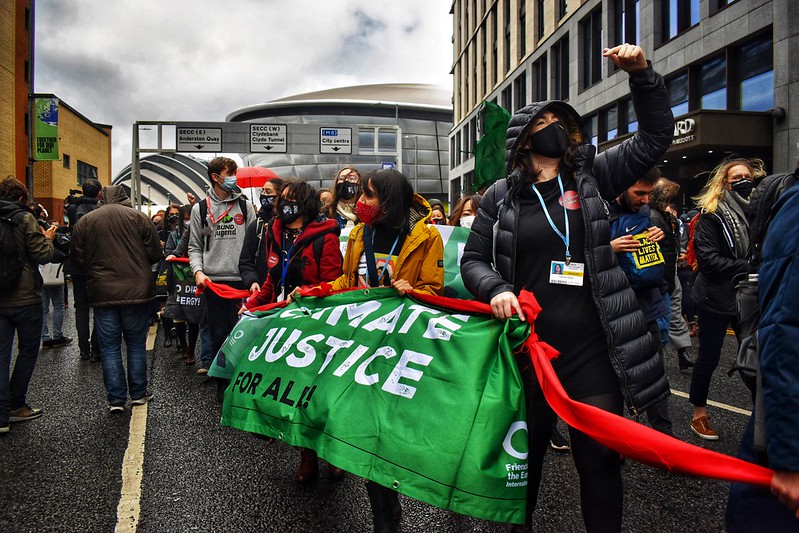International Conference on Just and Feminist Energy Transition
Keys to an energy system that puts life at the centre
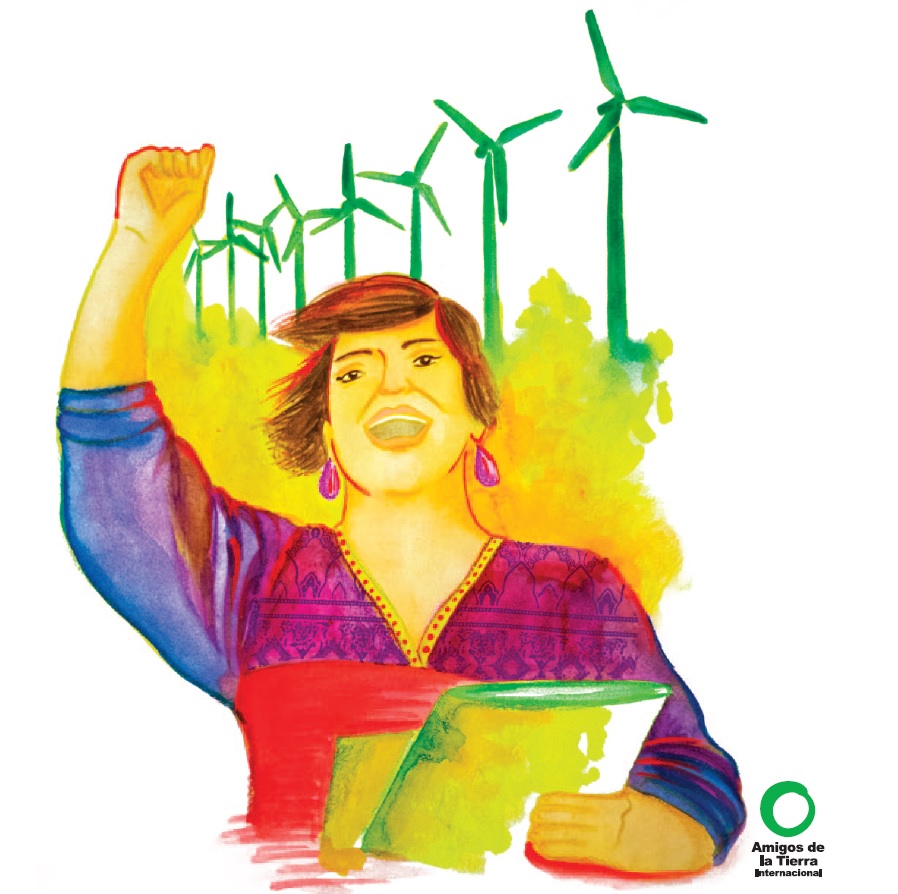
Energy transition is one of the key ways to tackle climate change. The current energy system, based on fossil fuels such as oil, coal and gas, is a major emitter of greenhouse gases like carbon dioxide. These gases are responsible for global warming.
But the problems of the current energy system lie not only in the type of energy and its technologies, but also in its logic and dynamics.
Energy for what, and for whom? These were the questions that resonated at the Conference on Just and Feminist Energy Transition, organised in Buenos Aires, capital of Argentina, by Tierra Nativa (Friends of the Earth Argentina) and Milieudefensie (Friends of the Earth Netherlands). The event was attended by women from Friends of the Earth International and allied organisations from all continents.
Energy production, distribution and consumption in the current system are geared towards the accumulation of wealth, not life. They are controlled by large corporations, mostly transnational corporations from the Global North. Their profits and impacts are unfairly distributed. Their logics are colonial, patriarchal and racist. They repeat, reproduce and sustain a predatory capitalism that destroys nature, violates peoples rights, dispossesses and displaces indigenous and black communities, doubly exploits women, and persecutes and murders activists.
That is why a truly just energy transition requires more than simply replacing fossil fuels with renewable energies, such as wind or solar energy. To be just, and therefore feminist, the transition must challenge the systems of oppression that underpin the current energy system, so that they can be radically transformed, rather than reproduced.
“The concept of just transition is in dispute; today the term has been co-opted by transnational corporations. It is not just about changing the technology. We are talking about a transition where peoples rights come first,” said Karin Nansen from Friends of the Earth Latin America and the Caribbean at the opening of the event.

Women on the frontlines
A series of presentations under the title “The challenges of renewable energy” showed the unfairness of the current system and the dangers of the unjust energy transition proposed by corporations. Diana Nabiruma, from the Africa Institute for Energy Governance from Uganda (AFIEGO), said that more than 800 million people on her continent do not have access to energy for cooking. This affects women in particular, who have historically occupied the (unrecognised and in the vast majority of cases unpaid) roles of reproducing life. However, the continent is one of the largest producers of energy. The question then arises: for what and for whom is this energy intended?
On this, Charity Migwi, environmental and climate activist from Kenya, said: “Mostly we consider women vulnerable in terms of the climate crisis, in terms of the energy use. Women in Africa who do not have access to clean cooking or clean energy use charcoal and firewood, and that means that they suffer respiratory diseases. There is indoor pollution, not only for women but also for kids, that leads to death. So we need to rethink our energy models, but also put women at the core of it and uplift their voices and give them a space to be able to contribute their unique perspectives.”
Meadhbh Bolger, from Friends of the Earth Europe gave a presentation on the “green transition” in Europe and warned about one of the many injustices that this “false solution” reproduces. The European Union is home to 6% of the world’s population, but consumes 25-30% of the metals and minerals produced globally. Interviewed by RWR, she explained:
“A feminist energy transition means that energy is first and foremost put towards uses that have reproduction, life and care at the centre, not uses like expanding militarisation or expanding space exploration. It means that decision making is not any more dominated by male or masculine thinking”.
The highly coveted minerals for the transition
The conference had local participants, among them Evelyn Vallejos from Catamarca province, Argentina. Vallejos is member of the Nuestra América movement, an organisation of workers in favour of grassroots economy. In Catamarca, open-pit mega-mining has been going on for 30 years and the consequences of this model are deeply felt. Vallejos gave a clear example: “Lithium is extracted from the Hombre Muerto salt flats to make lithium batteries for electric cars. The salt flats are one of the biggest natural absorbers of carbon dioxide, so we are destroying a natural source of mitigation.” Like the rest of the women at the conference, Vallejos questioned the production of energy to meet the demands of a market that has nothing to do with life.
In this regard, Luisa Galvão, from Friends of the Earth US, mentioned something that perfectly illustrates what Vallejos said: the US estimates that by 2025 there will be so many electric vehicles in the country that they will consume three times the amount of lithium produced globally. How is it possible that the global production of lithium is not enough for one country? This kind of consumption is excessive and greedy. It doesn’t seem a very fair equation. The question then becomes, for what and for whom is this energy produced?
The triangle of Argentina, Bolivia and Chile holds one of the largest lithium reserves in the world. Women from Jujuy, who are fighting for their territories and water sources, took part in the event. Jujuy is a province in northern Argentina that is rich in minerals, and particularly, lithium. In June, a provincial constitutional reform was passed, weakening the rules for the exploitation of Indigenous lands and restricting the right to protest.
In opposition to this reform, the Tercer Malón de la Paz (an organised group of more than 400 communities and Indigenous Peoples) is camping outside the Supreme Court of Justice in Buenos Aires. A delegation from the conference visited the site in solidarity. Several people are currently on hunger strike demanding that the reform be dropped. At the square the women chanted:
“if Pachamama dies, I die with her, without water and without territory where shall I put my heart?”
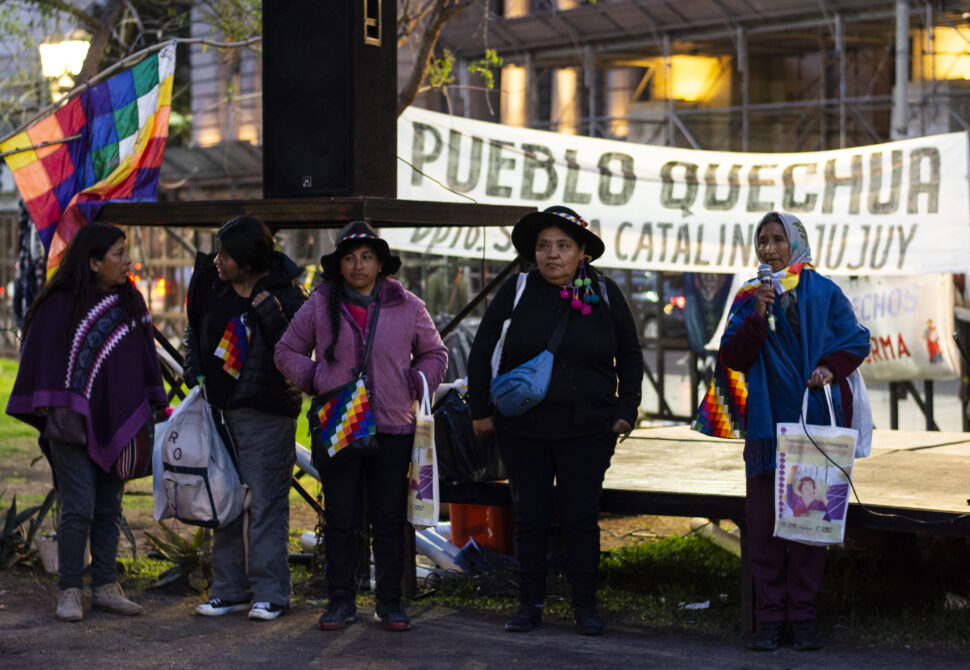
A just and feminist transition is possible
Every region and territory is different, so there is no ‘one size fits all’ approach for a just energy transition. Palestinian people suffer from energy shortages as a result of the Israeli occupation and colonialism, especially in the Gaza Strip and the Jordan Valley, which have been under siege for more than 16 years. The State of Israel uses energy as a form of control and a form of pressure for Palestinians to leave their land.
PENGON (Friends of the Earth Palestine) is carrying out renewable energy projects. Coordinator Abeer Butmeh told RWR: “The energy projects that we have in Palestine, we focus mainly on solar energy projects at the household level, at community level, at school level. Most of the projects are small-scale projects because there is no real Palestinian sovereignty on energy”. Most of these solar units are run and managed by women. PENGON works on training and strengthening their leadership.
“As women we have the right to raise our voices and our demands, and we have the right to lead the clean energy transition in the world.”
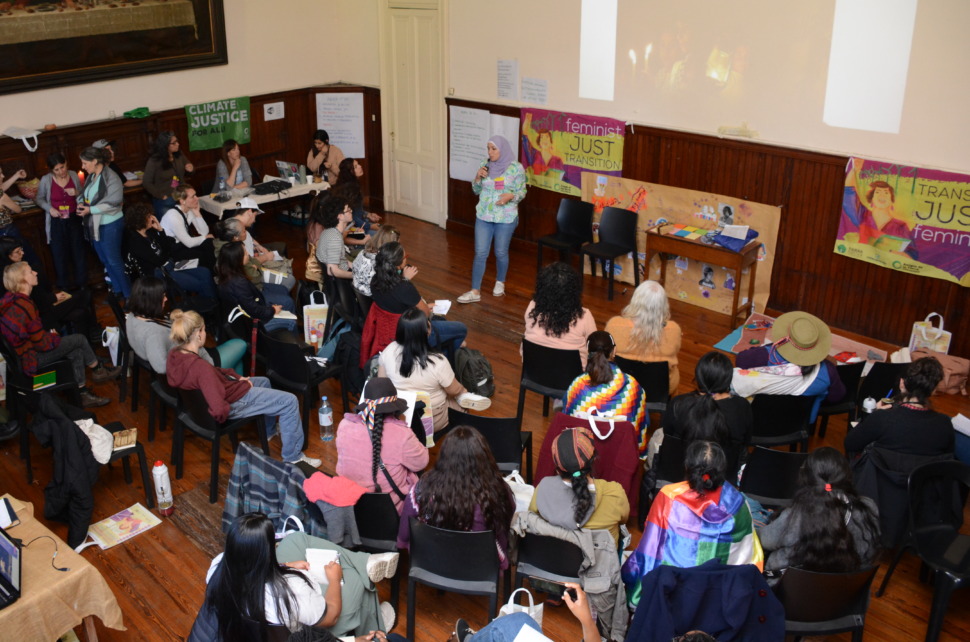
Tiara Davis is from Alaska and works with Native Movement as Director of the just transition department. She reflected on the feminist perspective of the energy transition: “We forget women of colour. We forget women in general. So that work administratively, intellectually, physically, is just kind of swept under the rug and you have men in the forefront. So we have to make sure that we’re pushing women to leadership roles so that the work that we’re doing is feminist, not just in word, but in action”.
Escarleth Zambrano is from the Amazon region of Ecuador, which for 50 years has suffered from the pollution and crimes of the oil industry. She is a member of the UDAPT (Friends of the Earth Ecuador), which is the Union of People Affected by Texaco (now Chevron). This area has a high incidence of cancer, especially among women, due to the gas flares that burn near villages and communities.
UDAPT works with a network of women from six indigenous communities – Quichua, Shuar, Siona, Siekopai, Cofán and Huaorani – as well as peasant women, on leadership and social and political participation. For Zambrano, the key is to build from the ground up.
“One of the biggest and most important steps we need to take to achieve a just transition is for the Indigenous peoples and nationalities to be the ones to build it”.
The approaches for thinking about the energy transition are many, and several themes emerged at the conference. One of them is the current financing of transition projects and loans as the main mechanism to increase the public debt of Global South countries, where the environmental debt is not recognised. There were also exchanges on energy as a right, the eradication of energy poverty, public policies and the struggle to reverse the processes of commodification and privatisation of energy systems. If you want to know more about the just energy transition we recommend the following articles:



